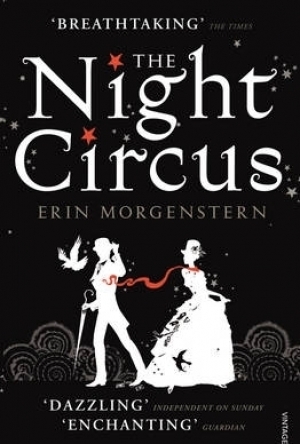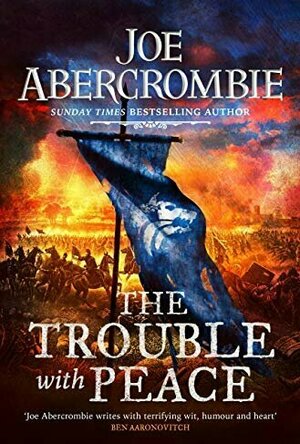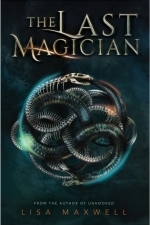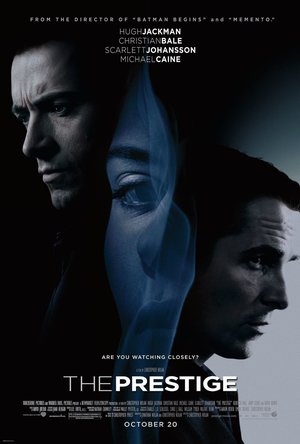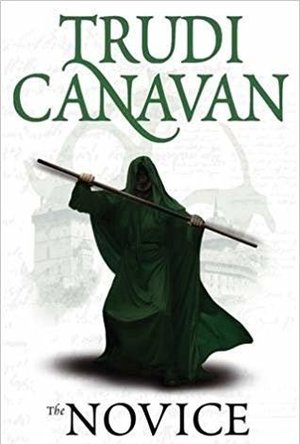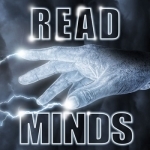Search
Louise (64 KP) rated The Night Circus in Books
Jul 2, 2018
From the ratings I had high expectations for this book, the synopsis was so intriguing it was a must read! I love magicians and circus’ (though I have actually never been to one)
The story was told in a third person narrative, it is very descriptive from the tents, the lavish dinners, magic and illusions that are performed. There are two young magicians, they are told that they’re in training for a competition, but not told who their opponents are or even when it begins.
Celia is the daughter of the legendary Prospero the enchanter, at 6 years old her after her mother’s death she is left to her fathers devices and signs her up for competition, She is then practicing constantly to become the best Magician possible.
Marco is the protegé of Mr A.H-, Marco was plucked from an orphanage one day after completing some menial tasks and was sent to live and study magic, he too was also informed that he would be in a competition but the details were very vague.
There are other characters in this book that all relate to the circus and intertwine with Celia and Marco’s story, however I don’t want to give too much away.
The descriptive writing in this book was wonderful I felt that I was at the circus, watching the illusionist,contortionists and acrobats, the tents, the magical clock, I could go on, however I felt this took a lot away from any character development and plot. There is not much of a plot to this book and each chapter goes back and forth, which felt it a bit disjointed
The romance in this book was tiresome, it didn’t feel real, there was no spark, I felt no emotion in the writing and it was a bit instalovey, as soon as they knew they were opponents there was this sudden love for one another.
I did enjoy the book and the writing but I didn’t love it, I think it has been overhyped a little.
Overall I rated this book 3.5 stars out 5
For more of my reviews please check out my blog www.louiselovesbooks.wordpress.com
The story was told in a third person narrative, it is very descriptive from the tents, the lavish dinners, magic and illusions that are performed. There are two young magicians, they are told that they’re in training for a competition, but not told who their opponents are or even when it begins.
Celia is the daughter of the legendary Prospero the enchanter, at 6 years old her after her mother’s death she is left to her fathers devices and signs her up for competition, She is then practicing constantly to become the best Magician possible.
Marco is the protegé of Mr A.H-, Marco was plucked from an orphanage one day after completing some menial tasks and was sent to live and study magic, he too was also informed that he would be in a competition but the details were very vague.
There are other characters in this book that all relate to the circus and intertwine with Celia and Marco’s story, however I don’t want to give too much away.
The descriptive writing in this book was wonderful I felt that I was at the circus, watching the illusionist,contortionists and acrobats, the tents, the magical clock, I could go on, however I felt this took a lot away from any character development and plot. There is not much of a plot to this book and each chapter goes back and forth, which felt it a bit disjointed
The romance in this book was tiresome, it didn’t feel real, there was no spark, I felt no emotion in the writing and it was a bit instalovey, as soon as they knew they were opponents there was this sudden love for one another.
I did enjoy the book and the writing but I didn’t love it, I think it has been overhyped a little.
Overall I rated this book 3.5 stars out 5
For more of my reviews please check out my blog www.louiselovesbooks.wordpress.com
Hazel (1853 KP) rated Elora of Stone (Legend of Rhyme, #1) in Books
Dec 17, 2018
<i>This eBook was provided by the publisher via NetGalley in exchange for an honest review
Elora of Stone</i> is the first in an exciting fantasy series, <i>Legend of Rhyme</i>, for young readers. Set in a magical kingdom, an evil magician steals one child of every pair of twins born. In order to protect their children, Asher and Ariana’s parents move to live near Elora – a good witch turned to stone by the sorcerer. Despite the protection, four-year-old Asher goes missing. The night of her thirteenth birthday Ariana learns of Asher’s whereabouts but only has until midnight to save him.
Full of magical creatures such as witches, fairies, pixies and goblins, <i>Elora of Stone</i> is the start of a sensational story for eight to twelve year olds. Heart stopping moments will urge the young readers to see the book through to the end to discover whether the twins succeed in being reunited and learn the truth about who is good and who is evil.
Although Asher and Ariana are the main characters of the series, they are not born until exactly half way through the book. As <i>Elora of Stone</i> is only one hundred pages, there are a bit too many chapters focused on setting the scene, resulting in the main story line and climax becoming rather rushed and crammed together.
Now that the preliminary introductions to characters and settings have been made, the following books in the series will hopefully flow better. <i>Legend of Rhyme</i> promises to be a unique fairytale to enthrall pre-teens of all reading levels. The narrative is clear and easy to follow with a limit on tricky words. To break up the text there is the occasional beautiful illustration depicting the author’s visual impressions of a handful of characters.
Ending on a slight cliffhanger, <i>Elora of Stone</i> will leave readers wanting more, thus making the <i>Legend of Rhyme</i> series a great set of books to collect; a wonderful start to your own personal library.
Elora of Stone</i> is the first in an exciting fantasy series, <i>Legend of Rhyme</i>, for young readers. Set in a magical kingdom, an evil magician steals one child of every pair of twins born. In order to protect their children, Asher and Ariana’s parents move to live near Elora – a good witch turned to stone by the sorcerer. Despite the protection, four-year-old Asher goes missing. The night of her thirteenth birthday Ariana learns of Asher’s whereabouts but only has until midnight to save him.
Full of magical creatures such as witches, fairies, pixies and goblins, <i>Elora of Stone</i> is the start of a sensational story for eight to twelve year olds. Heart stopping moments will urge the young readers to see the book through to the end to discover whether the twins succeed in being reunited and learn the truth about who is good and who is evil.
Although Asher and Ariana are the main characters of the series, they are not born until exactly half way through the book. As <i>Elora of Stone</i> is only one hundred pages, there are a bit too many chapters focused on setting the scene, resulting in the main story line and climax becoming rather rushed and crammed together.
Now that the preliminary introductions to characters and settings have been made, the following books in the series will hopefully flow better. <i>Legend of Rhyme</i> promises to be a unique fairytale to enthrall pre-teens of all reading levels. The narrative is clear and easy to follow with a limit on tricky words. To break up the text there is the occasional beautiful illustration depicting the author’s visual impressions of a handful of characters.
Ending on a slight cliffhanger, <i>Elora of Stone</i> will leave readers wanting more, thus making the <i>Legend of Rhyme</i> series a great set of books to collect; a wonderful start to your own personal library.
Ross (3284 KP) rated The Trouble With Peace in Books
Sep 28, 2020
Superb dialogue, plotting and war
I received an advance copy of this book from netgalley and the publishers in exchange for an honest review.
This is the second book in Abercrombie's second proper trilogy in the world of The First Law. I will admit to having issues with the first book, A Little Hatred, but they were mainly a result of the book building on from the previous trilogy (and the standalone books) but being a significant amount of time later. I had felt the characters had been left as "so-and-so's son/daughter" with minimal introduction otherwise.
Those issues are now long-forgotten, as in this book all characters receive enough attention to embed themselves and find their voices (no longer are Vick and Savine the same in my head, likewise Leo and Orso, although I have to admit that Clover and Broad still cross over in my mind).
The plot follows some gentle political and social manipulations, both in the capital Adua, and also in the North. Things quickly develop into a much stronger and very possible uprising against the throne, and more importantly against the corrupt financier and magician controlling the throne.
There are some truly superb action sequences in this book, where the action flows seamlessly from one character's PoV to another, almost as if watching a film, where the camera follows an arrow and watches the intended target until they stab at someone, who the camera then follows. This allows the action to unfold across both sides of the conflict and give the story from multiple angles. One of these scenes was one of the best told battle scenes I think I have ever read.
The plot is strong, the characters similarly, and the dialogue and narration is Abercrombie at his best. The crossing, double-crossing and triple-crossing is a joy to read. It is rare in a "grimdark" book to see one of the nastiest characters getting their comeuppance but at the end this is delivered in a fairly shocking manner.
This may just be Abercrombie's best book yet, in my humble opinion.
This is the second book in Abercrombie's second proper trilogy in the world of The First Law. I will admit to having issues with the first book, A Little Hatred, but they were mainly a result of the book building on from the previous trilogy (and the standalone books) but being a significant amount of time later. I had felt the characters had been left as "so-and-so's son/daughter" with minimal introduction otherwise.
Those issues are now long-forgotten, as in this book all characters receive enough attention to embed themselves and find their voices (no longer are Vick and Savine the same in my head, likewise Leo and Orso, although I have to admit that Clover and Broad still cross over in my mind).
The plot follows some gentle political and social manipulations, both in the capital Adua, and also in the North. Things quickly develop into a much stronger and very possible uprising against the throne, and more importantly against the corrupt financier and magician controlling the throne.
There are some truly superb action sequences in this book, where the action flows seamlessly from one character's PoV to another, almost as if watching a film, where the camera follows an arrow and watches the intended target until they stab at someone, who the camera then follows. This allows the action to unfold across both sides of the conflict and give the story from multiple angles. One of these scenes was one of the best told battle scenes I think I have ever read.
The plot is strong, the characters similarly, and the dialogue and narration is Abercrombie at his best. The crossing, double-crossing and triple-crossing is a joy to read. It is rare in a "grimdark" book to see one of the nastiest characters getting their comeuppance but at the end this is delivered in a fairly shocking manner.
This may just be Abercrombie's best book yet, in my humble opinion.
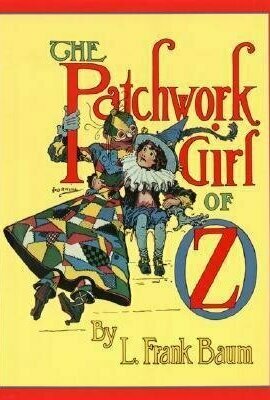
The Patchwork Girl of Oz
Book
In this dazzling tale, L. Frank Baum proves once again his power to delight and enchant readers of...
Haley Mathiot (9 KP) rated The Eternal Hourglass (Magickeepers, #1) in Books
Apr 27, 2018
Series Review:
I really enjoyed the Magickeeper series! It's written for ages 8-14, but even I got really into it and enjoyed it a lot.
The stories were both woven well, with plenty of mystery and suspense to keep you reading. Once I started to read, it was hard to put it down. I never knew what to expect and was always surprised. It was like walking through a fun-house: you never knew what was going to be around the corner.
My favorite characters had to be Nick and Isabella, followed closely by Isabella's pet tiger, Sascha. Sascha was just a really cool tiger. Vladimir, the hedgehog, was pretty cool, too. It was fun to watch Nick and Isabella together: they balanced each other well and would be fun people to be around. I wish they were real so we could hang out. Haley why would you want to hang out with thirteen-year-olds? Because they're magician thirteen-year-olds who can disappear and fly and look into crystal balls, and have more adventure in a day that I have in a month.
The writing was good and easy to read and easy to follow, but some of the structure was a little confusing at times. It didn't take away form the action and adventure, though.
I really liked the Russian culture incorporated into the stories. It wasn't overdone, but it was really fun to read the descriptions of the foods and the clothes and the decorations, and learn about some of the traditions. In the second book, The Pyramid of Souls, there was a lot of other cultures incorporated into it as well, because there were Magickeepers from Egypt and Nigeria and a Parisian clan, and Australians… so there were a lot of cool things that went on that we wouldn't normally think about—even in the world of magic.
I look forward to the next book in the Magickeeper series! The Eternal Hourglass came out in paperback on March 31, 2010 and The Pyramid of Souls was just published in hardback on May 1st, 2010.
Content/Recommendation: clean, and suitable for ages 8-16(-ish). I'm 18 and I enjoyed it, and parents would enjoy reading the books out loud to their kids as well!
I really enjoyed the Magickeeper series! It's written for ages 8-14, but even I got really into it and enjoyed it a lot.
The stories were both woven well, with plenty of mystery and suspense to keep you reading. Once I started to read, it was hard to put it down. I never knew what to expect and was always surprised. It was like walking through a fun-house: you never knew what was going to be around the corner.
My favorite characters had to be Nick and Isabella, followed closely by Isabella's pet tiger, Sascha. Sascha was just a really cool tiger. Vladimir, the hedgehog, was pretty cool, too. It was fun to watch Nick and Isabella together: they balanced each other well and would be fun people to be around. I wish they were real so we could hang out. Haley why would you want to hang out with thirteen-year-olds? Because they're magician thirteen-year-olds who can disappear and fly and look into crystal balls, and have more adventure in a day that I have in a month.
The writing was good and easy to read and easy to follow, but some of the structure was a little confusing at times. It didn't take away form the action and adventure, though.
I really liked the Russian culture incorporated into the stories. It wasn't overdone, but it was really fun to read the descriptions of the foods and the clothes and the decorations, and learn about some of the traditions. In the second book, The Pyramid of Souls, there was a lot of other cultures incorporated into it as well, because there were Magickeepers from Egypt and Nigeria and a Parisian clan, and Australians… so there were a lot of cool things that went on that we wouldn't normally think about—even in the world of magic.
I look forward to the next book in the Magickeeper series! The Eternal Hourglass came out in paperback on March 31, 2010 and The Pyramid of Souls was just published in hardback on May 1st, 2010.
Content/Recommendation: clean, and suitable for ages 8-16(-ish). I'm 18 and I enjoyed it, and parents would enjoy reading the books out loud to their kids as well!
Haley Mathiot (9 KP) rated The Pyramid of Souls (Magickeepers, #2) in Books
Apr 27, 2018
Series Review:
I really enjoyed the Magickeeper series! It's written for ages 8-14, but even I got really into it and enjoyed it a lot.
The stories were both woven well, with plenty of mystery and suspense to keep you reading. Once I started to read, it was hard to put it down. I never knew what to expect and was always surprised. It was like walking through a fun-house: you never knew what was going to be around the corner.
My favorite characters had to be Nick and Isabella, followed closely by Isabella's pet tiger, Sascha. Sascha was just a really cool tiger. Vladimir, the hedgehog, was pretty cool, too. It was fun to watch Nick and Isabella together: they balanced each other well and would be fun people to be around. I wish they were real so we could hang out. Haley why would you want to hang out with thirteen-year-olds? Because they're magician thirteen-year-olds who can disappear and fly and look into crystal balls, and have more adventure in a day that I have in a month.
The writing was good and easy to read and easy to follow, but some of the structure was a little confusing at times. It didn't take away form the action and adventure, though.
I really liked the Russian culture incorporated into the stories. It wasn't overdone, but it was really fun to read the descriptions of the foods and the clothes and the decorations, and learn about some of the traditions. In the second book, The Pyramid of Souls, there was a lot of other cultures incorporated into it as well, because there were Magickeepers from Egypt and Nigeria and a Parisian clan, and Australians… so there were a lot of cool things that went on that we wouldn't normally think about—even in the world of magic.
I look forward to the next book in the Magickeeper series! The Eternal Hourglass came out in paperback on March 31, 2010 and The Pyramid of Souls was just published in hardback on May 1st, 2010.
Content/Recommendation: clean, and suitable for ages 8-16(-ish). I'm 18 and I enjoyed it, and parents would enjoy reading the books out loud to their kids as well!
I really enjoyed the Magickeeper series! It's written for ages 8-14, but even I got really into it and enjoyed it a lot.
The stories were both woven well, with plenty of mystery and suspense to keep you reading. Once I started to read, it was hard to put it down. I never knew what to expect and was always surprised. It was like walking through a fun-house: you never knew what was going to be around the corner.
My favorite characters had to be Nick and Isabella, followed closely by Isabella's pet tiger, Sascha. Sascha was just a really cool tiger. Vladimir, the hedgehog, was pretty cool, too. It was fun to watch Nick and Isabella together: they balanced each other well and would be fun people to be around. I wish they were real so we could hang out. Haley why would you want to hang out with thirteen-year-olds? Because they're magician thirteen-year-olds who can disappear and fly and look into crystal balls, and have more adventure in a day that I have in a month.
The writing was good and easy to read and easy to follow, but some of the structure was a little confusing at times. It didn't take away form the action and adventure, though.
I really liked the Russian culture incorporated into the stories. It wasn't overdone, but it was really fun to read the descriptions of the foods and the clothes and the decorations, and learn about some of the traditions. In the second book, The Pyramid of Souls, there was a lot of other cultures incorporated into it as well, because there were Magickeepers from Egypt and Nigeria and a Parisian clan, and Australians… so there were a lot of cool things that went on that we wouldn't normally think about—even in the world of magic.
I look forward to the next book in the Magickeeper series! The Eternal Hourglass came out in paperback on March 31, 2010 and The Pyramid of Souls was just published in hardback on May 1st, 2010.
Content/Recommendation: clean, and suitable for ages 8-16(-ish). I'm 18 and I enjoyed it, and parents would enjoy reading the books out loud to their kids as well!
Kyera (8 KP) rated The Last Magician in Books
Jan 31, 2018
This was a brilliantly woven time-traveling, magical heist book and I didn't even know how much I wanted it in my life. The book is written from multiple perspectives, which took a couple of chapters to get used to (as I was listening to the audiobook and there weren't multiple narrators) but soon I recognized each character's unique voice and fell into the story. In general, the plot was not fast paced but Maxwell vibrantly painted the world our main character finds herself in.
Esta is an orphan and a thief who is tasked with going back in time to alter the events of a heist that occurred in 1904 New York City. New York City is a world of mages, people will unique affinities, like Esta's ability to manipulate the fabric of time. Esta herself is a likable main character and the lens through which we learn about the other characters. As she is also from our time period, she must occasionally readjust her worldview, actions or outward opinions to match those of the time. Despite the fact that she is a thief, we get to see her smart and sarcastic side as well as her stubborn determination.
Despite the large cast of characters, I felt that they were generally well-developed and had the time to grow. I really enjoyed getting to know Dolph as the multi-faceted head of a gang and Harte the magician that Esta has been warned against. The crew reminded me of the Dregs from Six of Crows at times, although they didn't have quite the same chemistry. It was still enjoyable to watch them, although I hope that the others in the gang are developed further because I would like to see more of their personalities or backstories.
There wasn't as much focus on the magic dynamics as I expected there to be, but I was so enamored by the characters and world-building that it wasn't noticeable. Maxwell did a fabulous job reconstructing New York City at the start of the twentieth century and I fell in love. Overall, I felt the book satisfyingly wrapped up most of the threads from the book and introduced a few more that can be explored in book two. I really enjoyed the read and cannot wait to see how it ends in the second book.
Esta is an orphan and a thief who is tasked with going back in time to alter the events of a heist that occurred in 1904 New York City. New York City is a world of mages, people will unique affinities, like Esta's ability to manipulate the fabric of time. Esta herself is a likable main character and the lens through which we learn about the other characters. As she is also from our time period, she must occasionally readjust her worldview, actions or outward opinions to match those of the time. Despite the fact that she is a thief, we get to see her smart and sarcastic side as well as her stubborn determination.
Despite the large cast of characters, I felt that they were generally well-developed and had the time to grow. I really enjoyed getting to know Dolph as the multi-faceted head of a gang and Harte the magician that Esta has been warned against. The crew reminded me of the Dregs from Six of Crows at times, although they didn't have quite the same chemistry. It was still enjoyable to watch them, although I hope that the others in the gang are developed further because I would like to see more of their personalities or backstories.
There wasn't as much focus on the magic dynamics as I expected there to be, but I was so enamored by the characters and world-building that it wasn't noticeable. Maxwell did a fabulous job reconstructing New York City at the start of the twentieth century and I fell in love. Overall, I felt the book satisfyingly wrapped up most of the threads from the book and introduced a few more that can be explored in book two. I really enjoyed the read and cannot wait to see how it ends in the second book.
BankofMarquis (1832 KP) rated The Prestige (2006) in Movies
Mar 22, 2018
Underrated and underseen gem
Along with INSOMNIA, the 2006 film that Nolan directed, THE PRESTIGE is probably one of his least known and least viewed films and that is too bad for it is a wonderful motion picture that proves he is a strong director with a strong vision.
Dubbed "The Warring Magicians" film, THE PRESTIGE stars Christian Bale and Hugh Jackman as two 19th Century Magicians who are...well...at war with each other. Of course, they started out as partners, but soon became enemies, each trying to out do each other and to discover the other magician's secrets.
Cleverly written by Nolan and his frequent collaborator, his brother Jonathan Nolan - and based on the novel by Christopher Priest, THE PRESTIGE will keep you guessing throughout, trying to figure out "how they did it" and are constantly being surprised by double turns, back stabbing and second guessing.
Bale, by this time in his career, has established himself as a powerful actor - and he shines here. Joining Bale is Nolan regular Michael Caine as the mentor of the two magicians, a young-ish Scarlett Johannsen as a a woman who falls in love with both of them (of course) and Rebecca Hall and Piper Perabo as Bale's and Jackman's wives, respectively. But...the surprise to me in this film when I first saw it - and again when I recently re-viewed it - is the performance of Hugh Jackman. This film shows that Jackman is more than just Wolverine - that dude can act. As a magician, he is showing glimpses of being "THE GREATEST SHOWMAN" (but that is another movie for another day) and more than holds his own against a fierce Bale. Finally...special notice needs to be made to the actor who portrays inventor Nikola Tesla - perfectly cast in this role is Ziggy Stardust himself, David Bowie. It's a shame that Bowie did not act in more films for he captures the screen in the brief appearances he makes in this film.
As for Nolan - he is now coming into his own as a Director. The action is fast paced, the twists and turns are "honestly" played, the composition of the pictures on the screen are interesting and beautiful to look at and I walked away satisfied.
If you haven't seen THE PRESTIGE (or if you haven't seen it in awhile) - check this one out. You'll be glad you did.
Letter Grade: A (and...that's a surprise to me, I figured it would be a B+/A- film)
9 (out of 10) stars and you can take that to the Bank (ofMarquis)
Dubbed "The Warring Magicians" film, THE PRESTIGE stars Christian Bale and Hugh Jackman as two 19th Century Magicians who are...well...at war with each other. Of course, they started out as partners, but soon became enemies, each trying to out do each other and to discover the other magician's secrets.
Cleverly written by Nolan and his frequent collaborator, his brother Jonathan Nolan - and based on the novel by Christopher Priest, THE PRESTIGE will keep you guessing throughout, trying to figure out "how they did it" and are constantly being surprised by double turns, back stabbing and second guessing.
Bale, by this time in his career, has established himself as a powerful actor - and he shines here. Joining Bale is Nolan regular Michael Caine as the mentor of the two magicians, a young-ish Scarlett Johannsen as a a woman who falls in love with both of them (of course) and Rebecca Hall and Piper Perabo as Bale's and Jackman's wives, respectively. But...the surprise to me in this film when I first saw it - and again when I recently re-viewed it - is the performance of Hugh Jackman. This film shows that Jackman is more than just Wolverine - that dude can act. As a magician, he is showing glimpses of being "THE GREATEST SHOWMAN" (but that is another movie for another day) and more than holds his own against a fierce Bale. Finally...special notice needs to be made to the actor who portrays inventor Nikola Tesla - perfectly cast in this role is Ziggy Stardust himself, David Bowie. It's a shame that Bowie did not act in more films for he captures the screen in the brief appearances he makes in this film.
As for Nolan - he is now coming into his own as a Director. The action is fast paced, the twists and turns are "honestly" played, the composition of the pictures on the screen are interesting and beautiful to look at and I walked away satisfied.
If you haven't seen THE PRESTIGE (or if you haven't seen it in awhile) - check this one out. You'll be glad you did.
Letter Grade: A (and...that's a surprise to me, I figured it would be a B+/A- film)
9 (out of 10) stars and you can take that to the Bank (ofMarquis)
Phil Leader (619 KP) rated The Novice (Black Magician Trilogy, #2) in Books
Nov 21, 2019
The Novice is the second book in The Black Magician trilogy and continues the story of Sonea, the slum girl who discovers she has magical powers.
A few months after the first book, Sonea is offically inducted as a novice into the Magician's Guild in Imardin. She is immediately looked down on by her fellow novices and indeed other magicians because of her poor upbringing (magicians always being taken from the families of the rich upper class). One novice in particular will go to any lengths to humiliate her. Meanwhile Sonea is hiding a secret. The High Lord of the Guild is practicing black magic, strictly forbidden. Dannyl is sent on a secret mission by Lorlen to try to discover how the High Lord won these powers and if there is anything that can be done to stop him.
I found this book to be far more satisfying than the first book, The Magician's Guild. I think this is due to two factors. Firstly Canavan's writing is far more confident and assured (not surprising for a second novel). Also the story arc is a lot less predictable and allows for more twists and turns since the end is not inevitable (in the first novel it is clear that Sonea will eventually be joining the guild; it is only the sub-plots that provide suprises).
As a consequence this is an easier read than the first book with plenty of good stories, either Sonea's (mis)adventures in the Guild or Dannyl's voyage of discovery on his travels. The end resolves one of the major plot points, leaving the rest for the third book, The High Lord to investigate.
Canavan touches on various topics during the book, particularly bullying by peers and also some nice observations on repression of homosexuality in the intolerant Imardin society.
It is also welcoming to see more of the land; the first book was bound to the city itself but here through Dannyl we get to see the neighbouring lands and discover some of their peoples and customs, together with a fair amount of hazardous travelling.
The magic system is also key; normally magicians throw around a bewildering array of spells with limitless powers. Clearly this isn't an option in these books and each spell and power Sonea learns is neatly and logically explained and consistant. It really makes a change that the magic spells are treated mechanically rather than as, well, 'magic'.
Definitely a recommended read
A few months after the first book, Sonea is offically inducted as a novice into the Magician's Guild in Imardin. She is immediately looked down on by her fellow novices and indeed other magicians because of her poor upbringing (magicians always being taken from the families of the rich upper class). One novice in particular will go to any lengths to humiliate her. Meanwhile Sonea is hiding a secret. The High Lord of the Guild is practicing black magic, strictly forbidden. Dannyl is sent on a secret mission by Lorlen to try to discover how the High Lord won these powers and if there is anything that can be done to stop him.
I found this book to be far more satisfying than the first book, The Magician's Guild. I think this is due to two factors. Firstly Canavan's writing is far more confident and assured (not surprising for a second novel). Also the story arc is a lot less predictable and allows for more twists and turns since the end is not inevitable (in the first novel it is clear that Sonea will eventually be joining the guild; it is only the sub-plots that provide suprises).
As a consequence this is an easier read than the first book with plenty of good stories, either Sonea's (mis)adventures in the Guild or Dannyl's voyage of discovery on his travels. The end resolves one of the major plot points, leaving the rest for the third book, The High Lord to investigate.
Canavan touches on various topics during the book, particularly bullying by peers and also some nice observations on repression of homosexuality in the intolerant Imardin society.
It is also welcoming to see more of the land; the first book was bound to the city itself but here through Dannyl we get to see the neighbouring lands and discover some of their peoples and customs, together with a fair amount of hazardous travelling.
The magic system is also key; normally magicians throw around a bewildering array of spells with limitless powers. Clearly this isn't an option in these books and each spell and power Sonea learns is neatly and logically explained and consistant. It really makes a change that the magic spells are treated mechanically rather than as, well, 'magic'.
Definitely a recommended read
